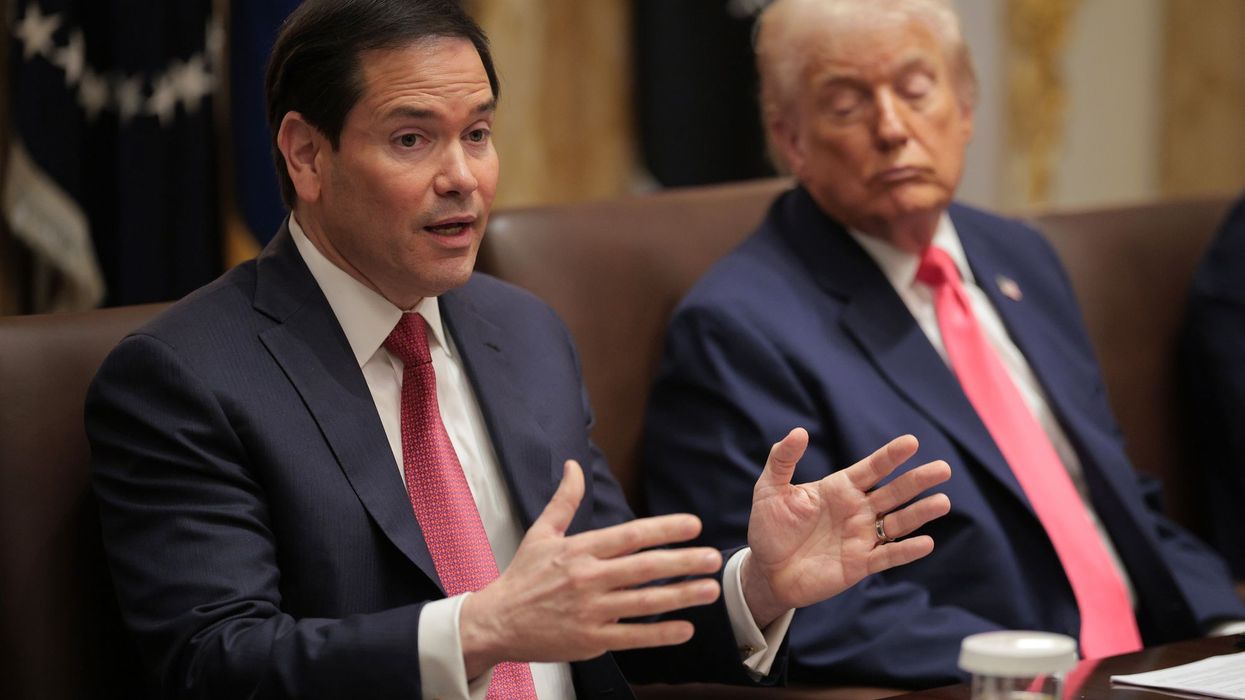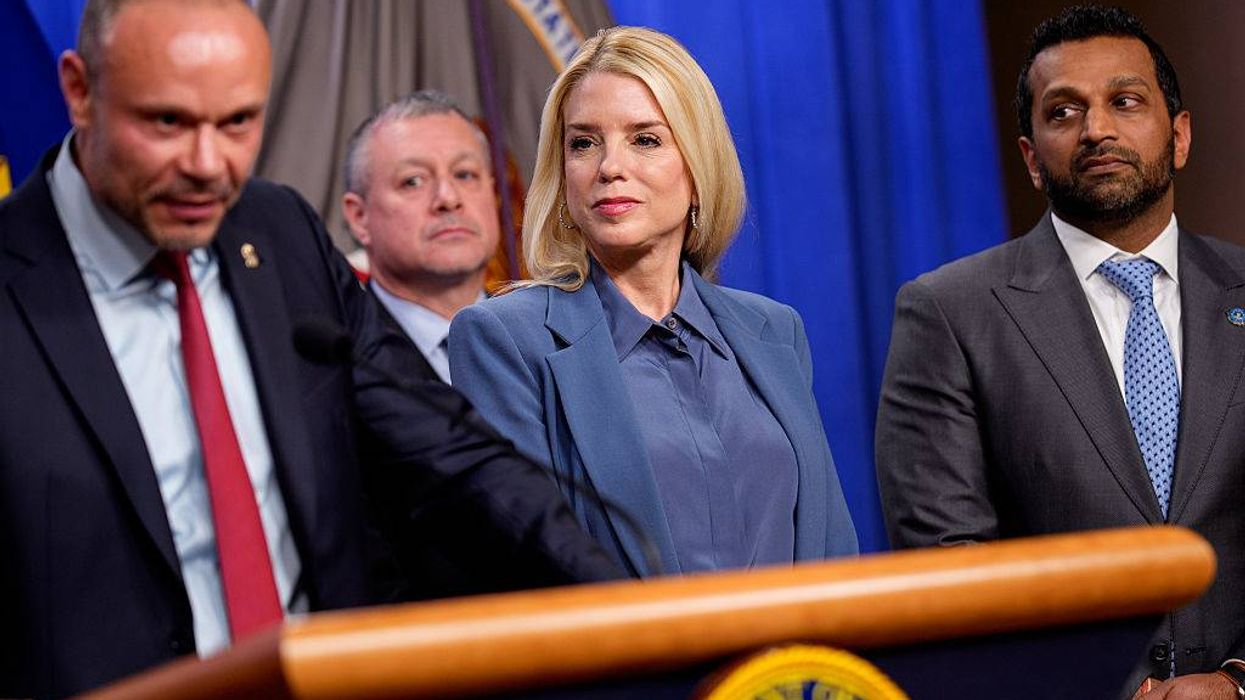December, 10 2020, 11:00pm EDT

For Immediate Release
Contact:
Chris Fleming, Red Horse Strategies, 202-631-0929, chris@redhorsestrategies.com
Kindred Motes, Wallace Global Fund, 646-713-8985, kmotes@wgf.org
Sam Quigley, Patriotic Millionaires, 317-752-9150, sam@patrioticmillionaires.org
Bob Keener, Institute for Policy Studies, 617-610-6766, bobk@ips-dc.org
Include Emergency Charity Stimulus in First 100 Days to Unlock $200 Billion for Charities at No Cost to Taxpayers, Urges Coalition Memo to Biden Transition Team
Stockpiled Charitable Funds Totaling $1.2 Trillion Would Distribute 10% for 3 Years Under the Proposal
WASHINGTON
A coalition of nonprofit groups has sent a memo to President-elect Biden's transition team, urging it to include an emergency charity stimulus in Biden's first 100 days agenda. The proposal, endorsed by over 550 philanthropists and leaders of foundations and several thousand nonprofit organizations, leaders and staff, would unlock $200 billion in charitable funds to assist charities overwhelmed by the pandemic - at no additional cost to taxpayers.
The memo from the Charity Reform Initiative of the Institute for Policy Studies, the Wallace Global Fund, and Patriotic Millionaires explains that private foundations and donor-advised funds (DAFs) would be required to release more of the estimated $1.2 trillion they currently hold, and for which tax deductions have already been taken. The proposal would increase the required distributions to 10 percent annually for three years.
The memo states, in part, "As Congress works to come to agreement on the size of a new COVID relief package, a straightforward proposal can send $200 billion over the next three years to struggling nonprofits at no cost at all to taxpayers and the Treasury. This far exceeds new donations that might be incentivized through the above-the-line charitable deductions included in the CARES Act or now proposed by Leader McConnell." It also says, "The money will come from funds stockpiled by donors who have already taken tax deductions."
The groups first proposed the idea for an Emergency Charity Stimulus in May with a letter to Congress. The letter has now been signed by more than 550 philanthropists and leaders of foundations and several thousand nonprofit organizations, leaders and staff.
The proposal contains the following measures: 1) Mandating a temporary doubling of private foundation payout from 5 percent to 10 percent for three years, and 2) Establishing a similar 10 percent payout for donor-advised funds (DAFs) that currently have no payout mandate.
Researchers at the Institute for Policy Studies estimate these policies would unleash $200 billion in additional charity funds over three years. The independent nonprofit sector is part of the front-line response to the pandemic and other natural disasters such as forest fires and hurricanes. The sector employs 12 million workers or more than 10 percent of the private workforce. A recent report predicts that as many as 38 percent of non-profit organizations may close as a result of the pandemic.
According to the memo, "While foundations and donors responded strongly to the COVID crisis, that funding is now dropping off sharply, even though the markets - and foundation assets - have rebounded to again reach record highs. Charities and nonprofits across the spectrum have suffered staggering job losses and closures, and their recovery is much, much more tenuous: a recent report found that employment in the sector remained down nearly one million jobs, one third of those in health care. As states are now forced to slash their budgets, nonprofit social service agencies dependent on public funding are seeing their own funding threatened even as demands on them rise steadily."
About the Charity Reform Initiative
The Charity Reform Initiative of the Institute for Policy Studies aims to modernize the rules governing philanthropy to increase the flow of resources to the nonprofit independent sector and protect the integrity of the tax system.
About the Patriotic Millionaires
The Patriotic Millionaires are high-net worth Americans, business leaders, and investors who are united in their concern about the destabilizing concentration of wealth and power in America. The mission of The Patriotic Millionaires organization is to build a more stable, prosperous, and inclusive nation by promoting public policies based on the "first principles" of equal political representation, a guaranteed living wage for all working citizens, and a fair tax system.
About the Wallace Global Fund
The mission of the Wallace Global Fund is to support people-powered movements to advance democracy and rights and to fight for a healthy planet.
The Patriotic Millionaires is a group of high-net worth Americans who share a profound concern about the destabilizing level of inequality in America. Our work centers on the two things that matter most in a capitalist democracy: power and money. Our goal is to ensure that the country's political economy is structured to meet the needs of regular Americans, rather than just millionaires. We focus on three "first" principles: a highly progressive tax system, a livable minimum wage, and equal political representation for all citizens.
(202) 446-0489LATEST NEWS
Trump 'Sends a Dangerous Message' With 'America First' Diplomat Purge, Says Union
The American Foreign Service Association said the move "tells our public servants that loyalty to country is no longer enough—that experience and oath to the Constitution take a back seat to political loyalty."
Dec 23, 2025
Following Politico's Friday reporting that "the Trump administration is recalling a number of career ambassadors appointed by former President Joe Biden," several news outlets confirmed Monday that the purge is affecting at least 29 diplomats.
"This is a standard process in any administration," an unnamed senior official at the US Department of State claimed to multiple journalists. "An ambassador is a personal representative of the president, and it is the president's right to ensure that he has individuals in these countries who advance the 'America First' agenda."
However, Nikki Gamer, a spokesperson for the diplomats' union, the American Foreign Service Association (AFSA), told the New York Times that "those affected report being notified abruptly, typically by phone, with no explanation provided."
"That method is highly irregular," she said. "The lack of transparency and process breaks sharply with long-standing norms."
Gamer told Reuters that "abrupt, unexplained recalls reflect the same pattern of institutional sabotage and politicization our survey data shows is already harming morale, effectiveness, and US credibility abroad."
In a statement, the AFSA added: "To remove these senior diplomats without cause or justification sends a dangerous message. It tells our public servants that loyalty to country is no longer enough—that experience and oath to the Constitution take a back seat to political loyalty."
According to the Associated Press:
Africa is the continent most affected by the removals, with ambassadors from 13 countries being removed: Burundi, Cameroon, Cape Verde, Gabon, Ivory Coast, Madagascar, Mauritius, Niger, Nigeria, Rwanda, Senegal, Somalia, and Uganda.
Second is Asia, with ambassadorial changes coming to six countries: Fiji, Laos, the Marshall Islands, Papua New Guinea, the Philippines, and Vietnam affected.
Four countries in Europe (Armenia, North Macedonia, Montenegro, and Slovakia) are affected; as are two each in the Middle East (Algeria and Egypt); South and Central Asia (Nepal and Sri Lanka); and the Western Hemisphere (Guatemala and Suriname).
Noting that there are about 80 vacant ambassadorships, Senate Foreign Relations Committee Ranking Member Jeanne Shaheen (D-NH) accused President Donald Trump of "giving away US leadership to China and Russia by removing qualified career ambassadors who serve faithfully no matter who's in power."
Eric Rubin, a retired career diplomat and former AFSA president, similarly highlighted that over half of US embassies won't have a confirmed ambassador, which he called "a serious insult to the countries affected, and a huge gift to China."
"This has never happened in the 101-year history of the US Foreign Service," Rubin told CNN. "Ambassadors serve at the pleasure of the president. But every president has kept most career professional ambassadors in place until their successors are confirmed by the Senate."
"The ambassadors who have been dismissed will mostly have to retire, which means the State Department will lose a large number of our most senior, experienced, and accomplished professionals," he explained. "This is bad for our diplomacy, bad for our national security, and bad for our influence in the world."
Keep ReadingShow Less
Judge Rules Trump Admin Must Give Due Process to Venezuelans Sent to El Salvador Torture Prison
"This ruling makes clear the government can't just send people off to a brutal foreign prison with zero due process and simply walk away," said an ACLU lawyer representing the men.
Dec 23, 2025
A federal judge has ruled that the Trump administration acted illegally when it deported over 200 Venezuelan nationals to a notorious prison in El Salvador without due process earlier this year.
On Monday, Judge James Boasberg of the US District Court for the District of Columbia ordered the Trump administration to submit plans by January 5 for 137 men to contest their designation under the Alien Enemies Act of 1798, which allows foreign nationals from "hostile" nations to be removed without hearings.
In March, Trump invoked the Alien Enemies Act to deport two planeloads of Venezuelan nationals to El Salvador without any explanation or court hearing. They were sent to a mega-prison known as the Terrorism Confinement Center, or CECOT, which is known to subject inmates to torture and severe deprivation, with zero contact with the outside world.
The administration claimed the men were members of the Venezuelan gang Tren de Aragua, which the administration referred to as a "hybrid criminal state" invading the United States. In reality, only a few dozen of the 238 men sent to CECOT had any criminal charges against them. As part of the US Immigration and Customs Enforcement's (ICE) efforts to fast-track their deportations, many were rounded up based solely on the fact that they had tattoos.
“Plaintiffs should not have been removed in the manner that they were, with virtually no notice and no opportunity to contest the bases of their removal, in clear contravention of their due-process rights,” Boasberg wrote.
Boasberg is the same judge who launched criminal contempt proceedings against the Trump administration in April for "willful disregard" of his order to stop the flights to El Salvador. A pair of Trump-appointed judges later halted those proceedings.
In a "60 Minutes" special that was recently spiked by CBS News' Trump-friendly editor-in-chief, Bari Weiss, several inmates testified to the conditions they were subject to inside CECOT.
"The first thing they told us was that we would never see the light of day or night again," said college student Luis Muñoz Pinto, who came to the US from Venezuela in 2024 through the legal asylum process. He said the CECOT director told prisoners, "Welcome to hell. I'll make sure you never leave."
According to a report published by Human Rights Watch in November, inmates were beaten daily, subject to sexual violence by guards, deprived of basic food, medical treatment, and hygiene, and forced to participate in degrading torture rituals.
Pinto, who now lives in Colombia, has no criminal record. "I never even got a traffic ticket," he said.
While the Trump administration claimed it no longer had jurisdiction over the prisoners once they were in El Salvador, and therefore could not follow court orders to bring them back to the US, this was belied by filings from the government of the far-right Salvadoran President Nayib Bukele at the United Nations, which stated that "the jurisdiction and legal responsibility for these persons lie exclusively" with the US.
The men detained at CECOT were then transferred, mainly to Venezuela, in July as part of a prisoner exchange for 10 US nationals.
Boasberg says the US government "maintained constructive custody" of the men while they were interned in CECOT and that it violated their rights to due process by not allowing them to contest the accusations that they were gang members.
He said the Trump administration must give them a "meaningful opportunity to contest their designation," by allowing them to return to the US for a court hearing. He said the government "could also theoretically offer plaintiffs a hearing without returning them to the United States so long as such a hearing satisfied the requirements of due process."
"This ruling makes clear the government can't just send people off to a brutal foreign prison with zero due process and simply walk away," said Lee Gelernt, an attorney for the ACLU, who served as lead counsel for the plaintiffs.
The Trump administration will almost certainly appeal the ruling. And while many of the former CECOT inmates may seek to return for their day in court, some say the experience has left them traumatized and fearful of returning to the United States.
Jerce Reyes Barrios, a professional soccer player and youth coach, returned to Venezuela after being released in July. According to his attorney, he was falsely accused due to a tattoo that the government claimed was a gang symbol, but was actually based on the Real Madrid soccer logo.
"I've focused my time on taking care of my daughters, coaching young kids, all to avoid those thoughts. At night, I sometimes have nightmares, and I feel like I'm still in CECOT," Reyes Barrios told ABC News. "At this moment, I'm not ready to decide if I want to fight this case."
Keep ReadingShow Less
DOJ Disclaimer Raises Eyebrows as Latest Epstein Files Contain Scandalous Mentions of Trump
"The US Department of Justice shouldn’t be acting like the White House’s personal law firm," said Democratic Rep. Nellie Pou.
Dec 23, 2025
The US Department of Justice on Tuesday released a new batch of documents related to the criminal investigation of convicted sex offender Jeffrey Epstein—along with a disclaimer aimed at exonerating President Donald Trump, who is mentioned numerous times in the latest disclosures.
In a message posted on X, the DOJ asserted that some of the latest documents "contain untrue and sensationalist claims made against President Trump that were submitted to the FBI right before the 2020 election."
The DOJ insisted that "the claims are unfounded and false, and if they had a shred of credibility, they certainly would have been weaponized against President Trump already."
Among the latest batch of documents released by the DOJ was a letter purportedly written by Epstein in prison to fellow convicted sex offender Larry Nassar in which he claimed that Trump "shares our love of young, nubile girls."
The existence of this letter was reported by the Associated Press in 2023, although its contents were not known at the time. According to MeidasTouch, investigators who found the letter submitted it for handwriting analysis to verify its authenticity, but it is not definitively known at this time if it was written by Epstein.
An internal DOJ email from 2020, meanwhile, states that Trump flew with Epstein on his private plane at least eight times between 1993 and 1996, which was more than had been previously known.
On two occasions, Trump and Epstein shared flights with two people whom the DOJ described as "possible witnesses" in a criminal case against Ghislaine Maxwell, a longtime Epstein accomplice who is serving a prison sentence for conspiring to help him sexually abuse minors.
The DOJ's post defending Trump from allegations made in the documents it had just released drew scrutiny from Politico senior legal affairs reporter Kyle Cheney, who pointed out some basic logical inconsistencies with the department's claims.
"Bizarre defensive post from DOJ saying if allegations of Trump had any credibility they would’ve been 'weaponized' against him," he wrote in response. "But... if they had credibility, then pursuing them, by definition, wouldn’t be weaponization."
Former Republican congressman Joe Walsh, who left the party over his disgust with Trump, said the DOJ post was further evidence of a justice system that had been totally compromised by the president's personal interests.
"Technically, this tweet is coming from our government," he wrote. "But it sounds like and reads like it’s coming from Trump’s lawyers. Trump has so completely corrupted our Justice Department."
Walsh's sentiment was echoed by Rep. Nellie Pou (D-NJ), who argued that "the US Department of Justice shouldn’t be acting like the White House’s personal law firm."
Trump's past relationship with Epstein has come under greater scrutiny in recent months, and the New York Times last week published a lengthy report detailing the two men's years of friendship.
Stacey Williams, a former model who has accused Trump of groping her in front of Epstein in 1993, told the Times that the two men were engaged in "trophy hunting" when it came to their pursuits of women.
The Times report also found that Epstein and Maxwell over the years "introduced at least six women who have accused them of grooming or abuse to Mr. Trump," including one who was a minor at the time.
The report emphasized, however, that "none have accused Mr. Trump himself of inappropriate behavior."
Keep ReadingShow Less
Most Popular


